THE LESSON:
Focus on the Officer and NCO Leader Relationship
NCO Responsibilities: The platoon leader should know that he is responsible for everything the platoon does or does not do. The platoon sergeant, on the other hand, is the key assistant and advisor to the platoon leader. In practice, the platoon sergeant is responsible for communications within the platoon and for ensuring that essential training and maintenance tasks are accomplished. The platoon leader establishes standards and unit policies and procedures. The platoon sergeant enforces them. In garrison, the platoon sergeant normally plays the predominant role. In the field, it is the platoon leader who should be out front, especially with respect to tactical or operational decisions. In the absence of the platoon leader, the platoon sergeant becomes the platoon leader.
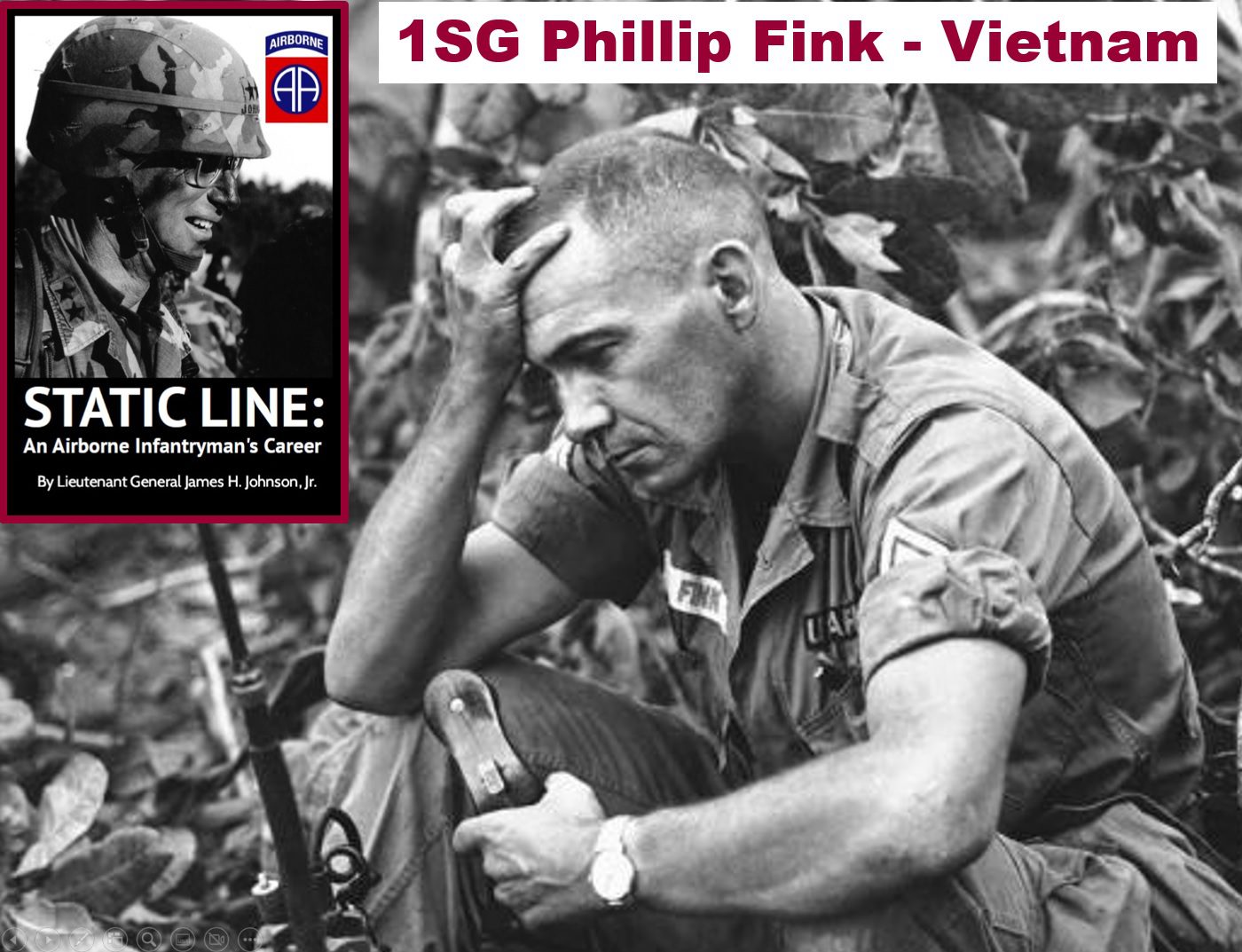
THE EXPERIENCE:
Values…
Everyone Remembers Their First…
Everyone remembers their first platoon sergeant. They were an indelible part of transitioning into a unit. In January 1961, my first assignment was as a rifle platoon leader. Everyone remembers their first platoon sergeant. Mine was SFC Philip R. Fink, 34 years old, from Mosheim, TN. He was a combat veteran from the Korean War and was now serving in the 82nd Airborne Division. Except for an elderly mother, he had no family. The Army was his family. In garrison, he was clearly in charge, and in the field, he pushed me out front, where I needed to be. Among the things he taught me were how to take care of soldiers, how to take responsibility, the role of the NCO, the importance of setting the example, and how to build a team. Phil Fink was a one-of-a-kind soldier, and I will never forget him.
When I departed Fort Bragg for Germany in 1963, SFC Fink volunteered for Vietnam, where he served back-to-back tours as an advisor with a Vietnamese Ranger Battalion. Later, as the 1SG of a rifle company in the 101st Airborne Division, 1SG Fink was KIA during an attack on his fire base in Thua Thien Province on August 13, 1968. He was only 42 years old.
The heroes, legends, and warfighters of the 82nd Airborne Division embody the core Army values of loyalty, selfless service, respect, personal courage, and integrity. Their unwavering loyalty is demonstrated through their commitment to their country, comrades, and mission. They exemplify selfless service, putting the needs of others before their own and sacrificing personal comfort for the greater good. These remarkable individuals display respect by treating others with dignity and honor, upholding the principles of respect in their interactions. They exhibit personal courage, facing fear and danger with unwavering bravery. Above all, their integrity shines through their adherence to the highest standards of honesty, moral character, and accountability. The 82nd Airborne Division's heroes inspire others to follow their example and uphold the Army values.
THE LESSON:
Adhere to Leadership Principles
a. Set the Example. You must be physically fit and mentally tough to lead. You must be absolutely honest. If you do not have integrity, it does not matter what else you have. There is never a right way to do a wrong thing.
b. Accept Responsibility. Seek the tough jobs. Do not wait to be told what to do. Show some initiative. If something turns out especially well, find someone else to take the credit. If something turns out especially bad, look at yourself first as the root cause of the problem. And look at yourself first as the potential problem solver.
c. Build a Team. Individuals do not win wars. Wars are won by small groups of soldiers, bonded together by teamwork. Your unit is only as strong as its weakest member.
d. Take Care of Your Soldiers. Caring does not mean coddling. Be tough, but fair. Train your men as if their life depended on it, because it may indeed depend on it. Set high standards and enforce them. Soldiers expect it. Do not just talk to your soldiers. Listen to them. There is no problem we cannot fix if we know about it. Keep your troops informed and tell them the reason “why.” If you cannot answer their questions as to what you are doing, then you better take another look at what you are doing!
e. Setting Standards. If you walk into the barracks and see cigarette butts on the floor and then, say or do nothing about it, that becomes your standard, that is, cigarette butts on the floor!
f. Keep the Boss Informed. Keep your boss informed, especially with respect to bad news. Do it right away. Bad news does not improve with age!
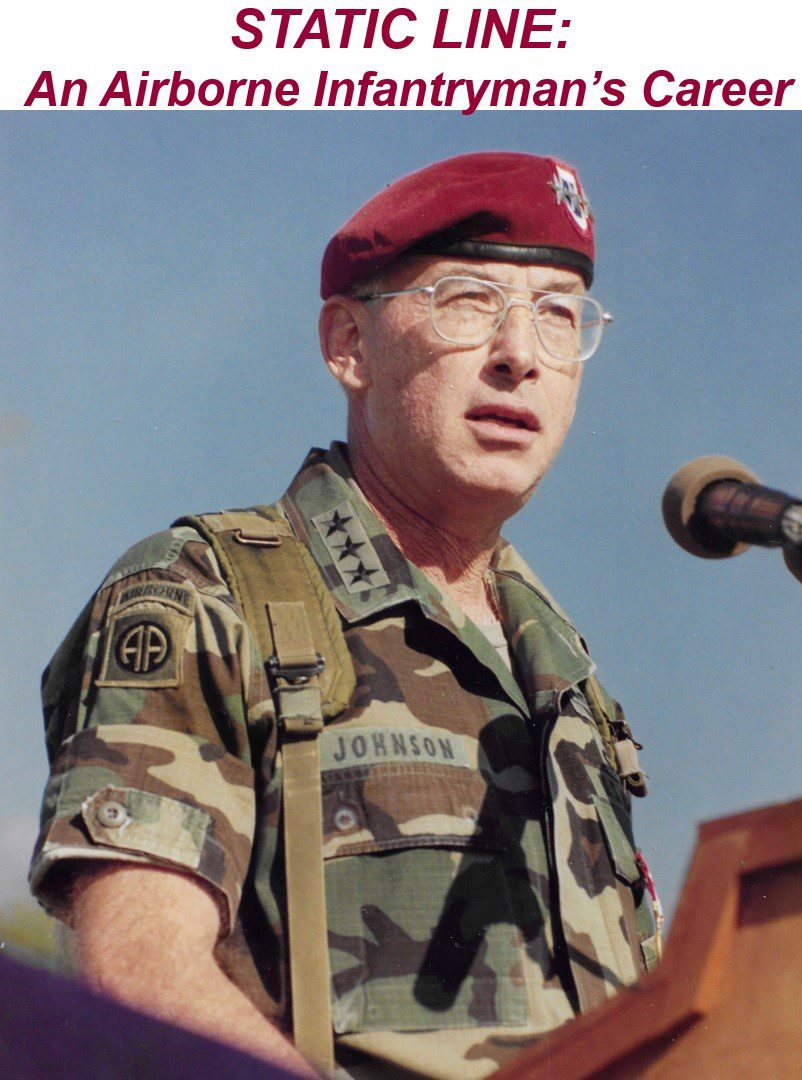
THE EXPERIENCE:
Values…
The U.S. Army is an institution of Values
As I reflect on my 33-year US Army career, I believe it was the constant drumbeat of professional military values that consistently affected my decision-making process. In my view, the West Point motto of duty, honor and country could easily be extrapolated to reflect the Army’s seven core values of duty, loyalty, courage, honor, integrity, respect, and selfless service. These values build character. These values define a moral responsibility and an ethical standard that are second to none. These values will cause a professional Army officer to do the right thing, for the right reason, every time – regardless of any personal cost.
The Military Academy has also published a list of nine principles that can also be used as a guide for an Army troop leader. They are duty, honor, loyalty, service, courage, competence, teamwork, subordination, and leadership. It is from this list of principles that I shaped my own leadership philosophy, as it evolved over 33 years. All of them are important. I consider these three to be imperative: (1) leadership by example, (2) teamwork and (3) loyalty, that is, taking care of soldiers and their families.
My message to anyone who aspires to lead American soldiers in peace and war, is that they dedicate themselves to these principles of officership. They are the values and ethical standards that are the foundation of the US Army, as an institution. If you have internalized them, my guess is that they will quickly become the foundation of your own concept of leadership.
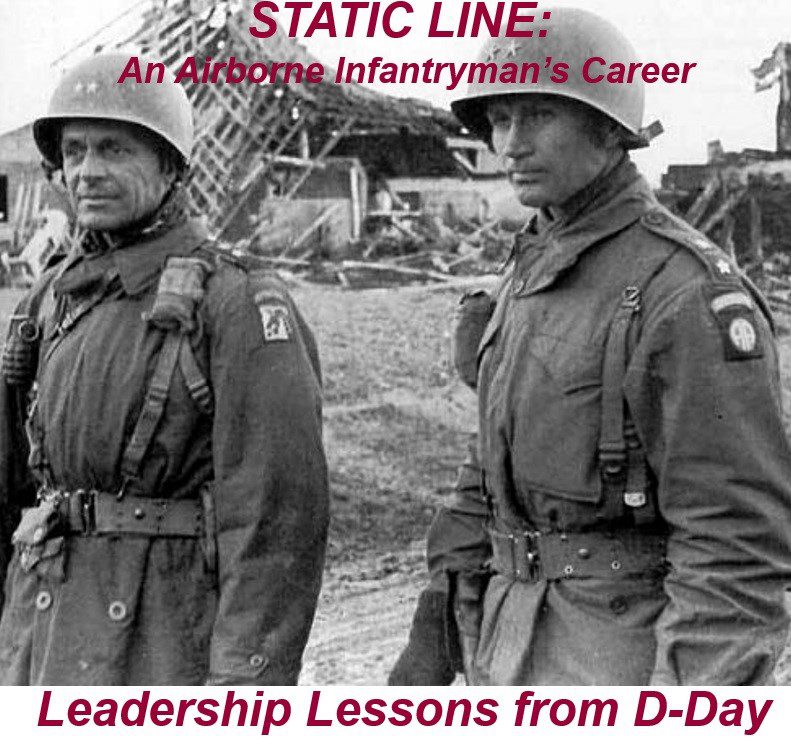
As a leader with 33 years of military service, the lessons I have learned hold particular significance when examined through the lens of the D-Day invasion on June 6, 1944. Understanding and adhering to leadership principles were paramount during this historic operation. Leaders had to set the example by demonstrating physical fitness, mental resilience, and unwavering integrity. They had to accept responsibility for their actions and decisions, and show initiative in the face of immense challenges. Building cohesive teams was crucial for the success of the invasion, as individual soldiers relied on each other to overcome obstacles and achieve their objectives.
Taking care of soldiers was of utmost importance during the D-Day invasion. Leaders had to strike a balance between tough and fair treatment, ensuring soldiers were well-trained and prepared for the mission ahead. Setting high standards and enforcing them were vital to ensure operational readiness. Furthermore, effective communication played a critical role. Leaders needed to listen to their soldiers, keep them informed, and explain the purpose behind their actions. This helped foster trust and confidence, ensuring everyone was working towards a common goal.
The officer and NCO leader relationship was also integral to the success of the D-Day invasion. Platoon leaders and sergeants had to work hand in hand, with the platoon leader setting standards and policies, while the platoon sergeant enforced them. In the chaos of battle, the platoon sergeant often assumed leadership in the absence of the platoon leader, ensuring continuity and unity within the unit.
Training was a cornerstone of the D-Day invasion. Soldiers had to be prepared both mentally and physically for the challenges they would face on the beaches of Normandy. Leaders had to prioritize training, limit distractions, and conduct realistic and battle-focused exercises. They had to lead from the front, actively participating in training alongside their soldiers, ensuring they were fully prepared for the monumental task ahead.
Reflecting on the lessons learned from the D-Day invasion, it becomes evident that adherence to leadership principles, fostering strong officer-NCO relationships, prioritizing training, and taking care of soldiers were essential components of the operation's success. The remarkable achievements of that historic day serve as a testament to the enduring value of these lessons, reminding us of the immense importance of effective leadership in the face of monumental challenges.
THE LESSON:
Adhering to Leadership Principles in the Vietnam War
Adhering to leadership principles in the context of the Vietnam War presented unique challenges and emphasized the importance of certain aspects. To set the example, leaders had to demonstrate physical fitness and mental toughness despite the harsh conditions of the war. They had to lead with honesty and integrity, knowing that there was never a right way to do a wrong thing in the complex and morally challenging environment they faced.
Accepting responsibility took on added significance in Vietnam. Leaders had to seek out the tough jobs and show initiative without waiting to be told what to do. They understood that if something turned out well, it was essential to attribute credit to others, fostering camaraderie and recognizing the collective efforts. Conversely, leaders had to reflect on themselves as the potential root cause of problems and be proactive in finding solutions.
Building a team became even more critical in Vietnam. Wars were not won by individuals, but by small groups of soldiers bonded together through teamwork. Leaders recognized that the strength of their unit relied on the cohesion and support among its members, and they worked tirelessly to foster unity and a sense of shared purpose.
Taking care of soldiers in Vietnam meant balancing toughness and fairness. Leaders understood that caring for their troops did not equate to coddling them, but rather training them as if their lives depended on it – because they often did. Setting high standards and enforcing them became vital for ensuring operational effectiveness and the safety of the soldiers under their command. Leaders actively listened to their troops, addressing any problems that arose, and kept them informed about the mission objectives, providing them with a clear understanding of the "why" behind their actions.
In Vietnam, setting standards went beyond mere cleanliness. Leaders recognized that the standards they set would become the norm for their units. By addressing issues like cigarette butts on the floor, leaders established a culture of discipline and attention to detail, ensuring that every aspect of their unit's performance reflected excellence.
Finally, keeping the boss informed took on increased importance in Vietnam. Leaders understood that immediate communication of bad news was crucial. They recognized that bad news did not improve with age, and by keeping their superiors informed, they facilitated timely decision-making and ensured that critical issues were addressed promptly.
Throughout the Vietnam War, leaders who adhered to these principles and adjusted them to the unique challenges of the conflict demonstrated effective leadership and fostered unit cohesion, ultimately contributing to mission success in an arduous and complex environment.
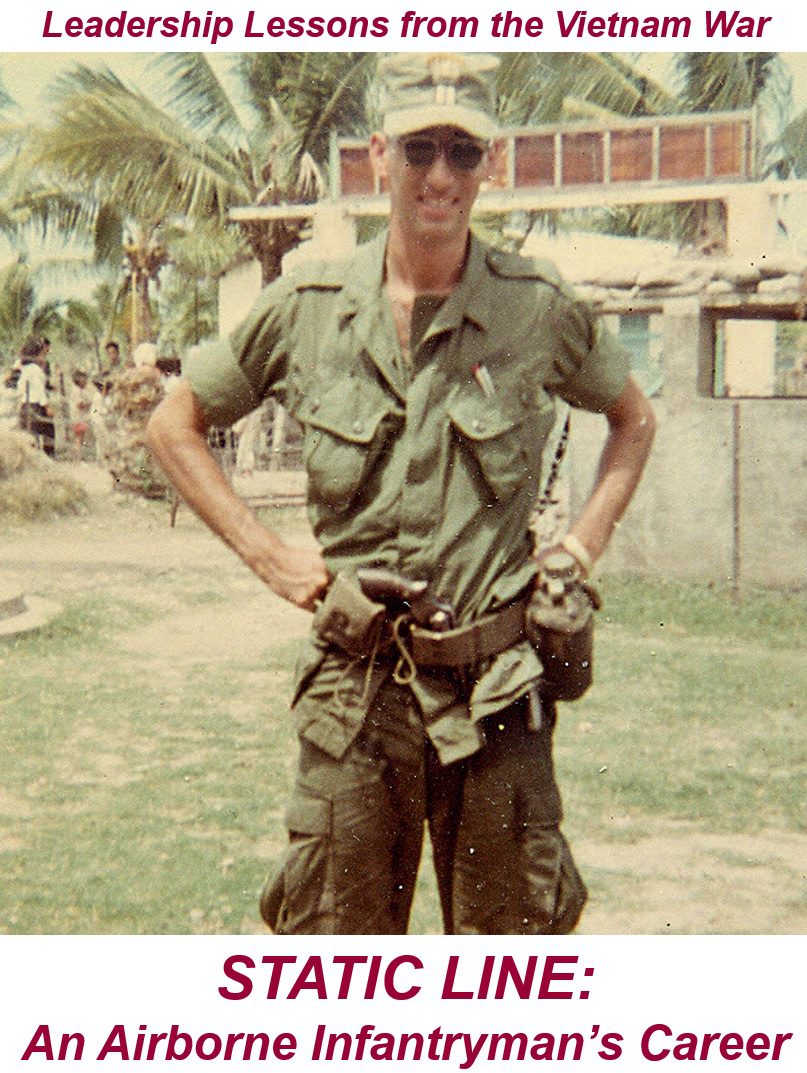
THE EXPERIENCE:
Leadership Lessons from the Vietnam War
As a leader with 33-years of military service, the Vietnam War provided valuable lessons that continue to resonate. One crucial leadership takeaway is the understanding and adherence to leadership principles. Leaders must set the example by embodying physical fitness, mental toughness, and unwavering integrity. They should accept responsibility, seek tough challenges, show initiative, and prioritize their soldiers' well-being. Building a cohesive team is vital, as wars are won by small groups of soldiers bonded together through teamwork. Taking care of soldiers involves training them rigorously, setting high standards, listening to their concerns, and keeping them informed about mission objectives.
Another important lesson is the focus on the officer and NCO leader relationship. The platoon leader is responsible for everything the platoon does or fails to do, while the platoon sergeant serves as a key assistant and advisor. The platoon leader establishes standards and policies, while the platoon sergeant enforces them. The leader should be at the forefront during tactical or operational decisions, with the platoon sergeant assuming leadership responsibilities in their absence.
Training should be prioritized to achieve operational readiness. Leaders must limit distractions and consolidate support tasks to maintain a focus on training. Field training away from the unit area and garrison provides the best opportunities for meaningful individual and collective training. Leaders must actively lead training by spending time with the troops and ensuring that the most crucial training is prioritized.
The lessons from the Vietnam War also emphasize the importance of cultural awareness in counterinsurgency operations. Leaders must respect and understand the values and beliefs of the local population. Building trust and confidence among the local people is crucial for mission success. Soldiers should immerse themselves in the local culture, interact with the population daily, and develop cultural awareness as a key aspect of their military operations abroad.
These leadership and combat lessons from the Vietnam War continue to shape the approach of leaders with the aim of fostering excellence, unity, and mission success in military operations.
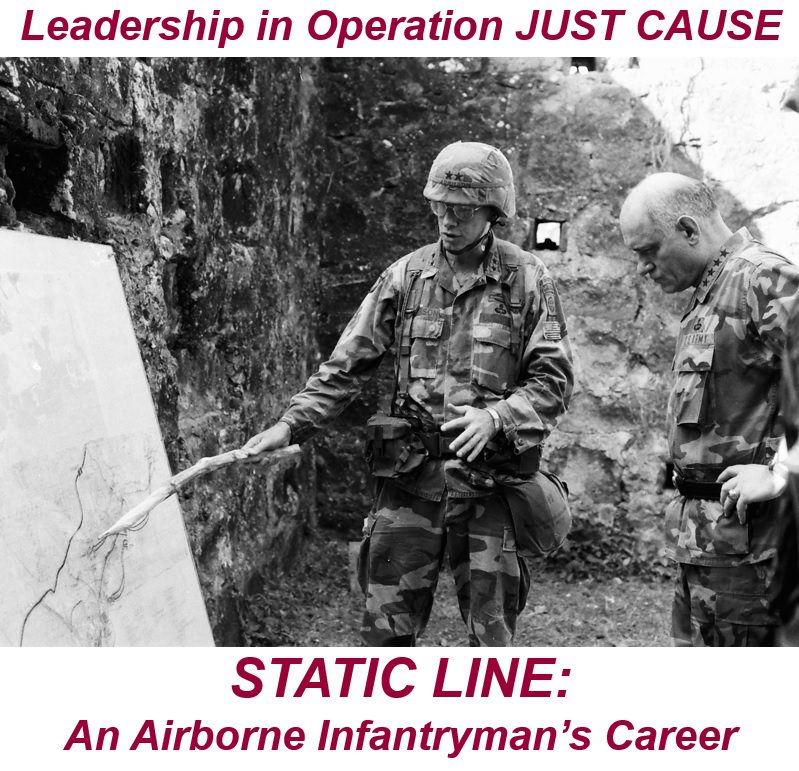
THE LESSON
The Impact of Leadership in Operation JUST CAUSE:
Operation JUST CAUSE marked a significant milestone in my 33-year military career, as it showcased the tangible impact of effective military leadership on tactical, operational, and strategic success. The lessons learned from this operation align with my own experiences and insights. A key lesson is the importance of understanding and adhering to fundamental leadership principles, which played a pivotal role in the operation's success. Leading by example, embodying physical fitness, mental toughness, and unwavering integrity, as well as assuming responsibility, demonstrating initiative, and prioritizing the well-being of soldiers, are all essential components of effective leadership.
Another vital lesson derived from Operation JUST CAUSE is the criticality of prioritizing training for operational readiness. To maintain the integrity of the unit, it is crucial to minimize distractions and consolidate support tasks. Field training conducted away from garrison provides optimal opportunities for both individual and collective training. Leaders must actively engage with their troops during challenging exercises, dedicating time to those who are most likely to face the realities of the battlefield. Focused preparation centered around these individuals is pivotal for achieving operational readiness.
Furthermore, my personal experiences underscore the value of alternating between heavy and light junior officer assignments. Operation JUST CAUSE revealed the importance of adapting to different environments and acquiring diverse perspectives and skills. Transitioning from infantry to mechanized units necessitated shifts in operational mentality, adjustments in pacing, and changes in logistical priorities. While physical fitness and teamwork were crucial in light divisions, implementing rigorous training posed challenges in mechanized divisions. Serving in both types of units during the early stages of my career provided invaluable insights that continue to inform my decision-making processes.
To summarize, the lessons derived from Operation JUST CAUSE, accumulated over my extensive military service, have significantly shaped my leadership style. These lessons emphasize the importance of adhering to leadership principles, cultivating strong officer-NCO relationships, prioritizing training, and fostering cultural awareness. Applying these lessons can enhance leadership effectiveness and operational outcomes within the military. Additionally, the lessons from the operation reinforce the need for joint service interoperability exercises, battle-focused training programs, home station training emphasizing urban terrain and non-combatant evacuation operations, as well as a balanced mix of Army forces. The value of specific weapons and equipment, dedicated civil affairs support, family assistance centers, and small unit live fire exercises are also highlighted as essential components of military operations.
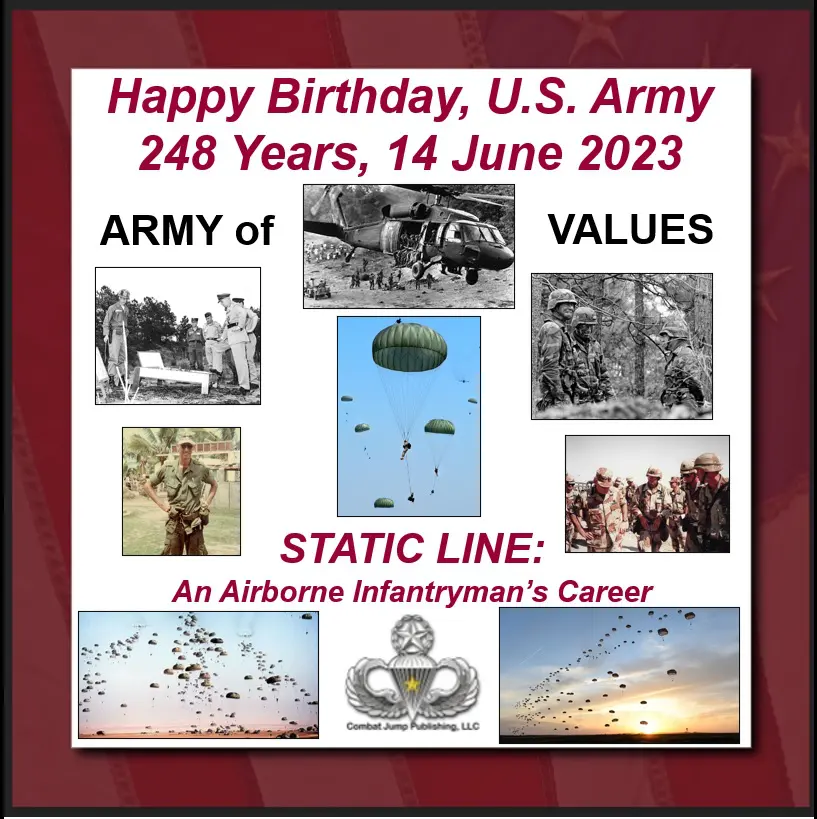
Happy Birthday US Army!
An Army of Values:
On the occasion of the 248th Birthday of the US Army, I take a moment to reflect on my 33-year military career and the profound influence of our Army values. Throughout my journey, the unwavering commitment to professional military values has continuously guided my decision-making process. As I contemplate the West Point motto of duty, honor, and country, I see a reflection of the Army's seven core values: duty, loyalty, courage, honor, integrity, respect, and selfless service. These values not only shape our character but also establish a moral responsibility and ethical standard that are unparalleled. They inspire Army officers to consistently do what is right, driven by a sense of duty, regardless of personal cost.
In addition to these core values, the US Army has put forth a list of nine principles that serve as a valuable guide for Army troop leaders. These principles encompass duty, honor, loyalty, service, courage, competence, teamwork, subordination, and leadership. Over the course of my career, these principles have influenced and shaped my own leadership philosophy. While all of them hold significance, I believe three are paramount: (1) leadership by example, (2) teamwork, and (3) loyalty—taking care of soldiers and their families.
To those aspiring to lead American soldiers in both times of peace and war, my message is clear: dedicate yourself to these principles of officership. They are the bedrock of the US Army as an institution, embodying our values and ethical standards. By internalizing these principles, they will swiftly become the foundation of your own leadership concept, guiding your actions and inspiring those under your command.
As we celebrate this milestone, let us renew our commitment to upholding these values and principles that have shaped the US Army throughout its storied history. Happy 248th Birthday to the United States Army!
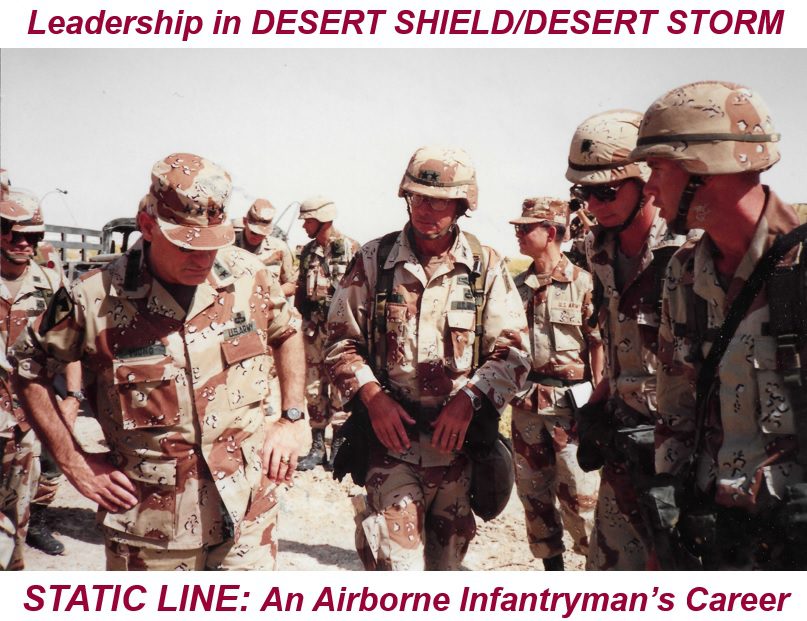
Summary of U.S. Success in the Persian Gulf
Over the years, many people have asked me to explain why Operations DESERT SHIELD and DESERT STORM were so successful. From a larger perspective, it was the generation of senior Army leaders who fought in Vietnam and then stayed in the Army for the next 15 years, which turned the ship around. They were able to reform the institution and make the difference in the areas of personnel, realistic training, warfighting doctrine, the use of mixed forces, the modernization of equipment, and leader development. These efforts paid off in the Persian Gulf. From my own perspective, the answer to this question centers around the following four points that I believe also apply across the entire U.S. Army:
First, there was the QUALITY OF THE AMERICAN soldier. Paratroopers of the 82nd Airborne Division were not only courageous in battle, but also compassionate in their dealings with enemy prisoners of war and the large number of refugees and displaced civilians encountered in the Euphrates River Valley. These soldiers were better than ever. They were smarter, more physically fit and motivated for all the right reasons.
Second, there was nothing but TOUGH, REALISTIC TRAINING by the 82nd Airborne Division, from top to bottom, both prior to our deployment and while we were in Saudi Arabia. It was battle focused training that made our soldiers “desert tough.” They trained as if their life depended on it because it did!
Third, there was the LEADERSHIP of the 82nd Airborne Division, both officer and noncommissioned officer, which excelled at every echelon of command, especially at the small unit level. All of this was a by-product of the Army’s officer and noncommissioned officer education systems and the extraordinary emphasis on leader development. The Division’s success in graduating large numbers of junior leaders from Ranger School was also a big asset.
Finally, operations in the Persian Gulf were a remarkable success because of the overwhelming SUPPORT OF THE AMERICAN PEOPLE: People of all ages, young and old. People from all walks of life. People from across our country, indeed, from across the world. The amount of mail and support packages to our soldiers was overwhelming.
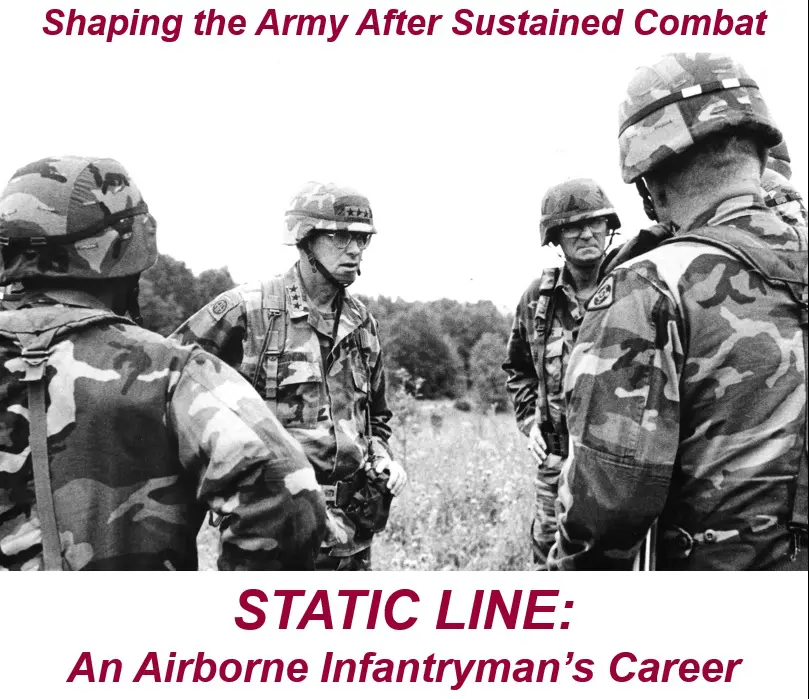
Shaping the Total Army Force After a Period of Sustained Combat
The post-Vietnam War era marked a turning point for the US Army, and the lessons learned from Operations DESERT SHIELD and DESERT STORM in the Persian Gulf were instrumental in shaping its improvement. The success of these operations can be attributed to several key factors, which hold significance for the entire US Army. Firstly, the quality of the American soldier played a vital role. The soldiers of the 82nd Airborne Division demonstrated not only courage in battle but also compassion in their interactions with enemy prisoners of war and civilians. These soldiers were highly skilled, physically fit, and motivated, reflecting the positive impact of personnel reforms.
Secondly, the emphasis on tough and realistic training by the 82nd Airborne Division was crucial. Through battle-focused training, these soldiers became "desert tough" and trained as if their lives depended on it. The rigorous training prior to deployment and during their time in Saudi Arabia prepared them for the challenges they would face. This focus on training ensured that the soldiers were well-prepared and capable of executing their missions effectively.
The leadership within the 82nd Airborne Division played a significant role in the success of the operations. Both officers and noncommissioned officers demonstrated exceptional leadership skills at all levels of command, particularly at the small unit level. This success was a result of the Army's officer and noncommissioned officer education systems and the emphasis on leader development. The Division's ability to produce a significant number of junior leaders who had graduated from Ranger School further enhanced their capabilities.
Lastly, the overwhelming support of the American people was a critical factor in the success of operations in the Persian Gulf. People from all walks of life, young and old, across the United States and even from around the world, provided unwavering support to the soldiers. The outpouring of mail and support packages demonstrated the immense backing from the American people, boosting morale and motivation among the troops.
Looking ahead to the future US Army after the Global War on Terror, these lessons will continue to shape its trajectory. The emphasis on quality personnel, tough and realistic training, effective leadership development, and strong support from the American people will remain fundamental principles guiding the Army's operations and success in future endeavors.
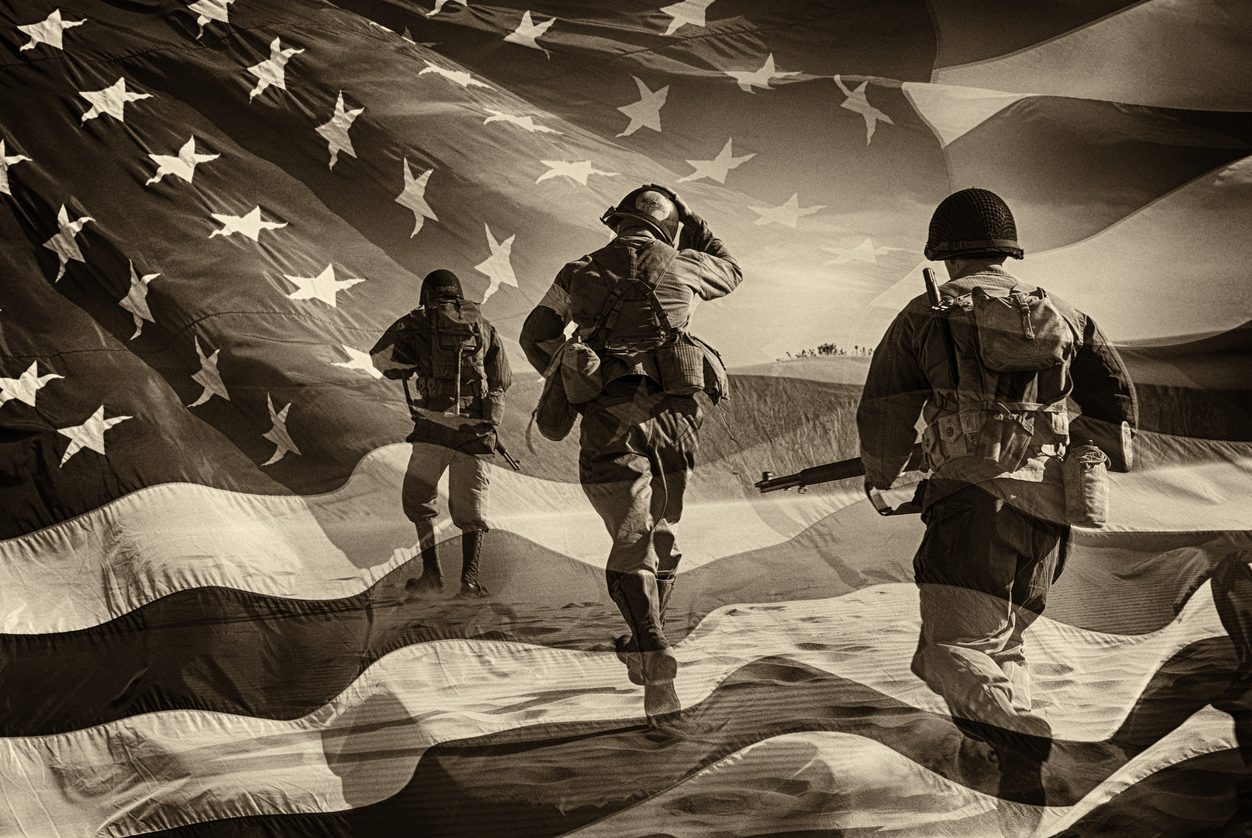
Military Leadership and the 4th of July
From “Static Line: An Airborne Infantryman’s Career”
On this 4th of July holiday I would to reflect on the values that have shaped the US Army, and the lessons learned from operations like DESERT SHIELD and DESERT STORM in the Persian Gulf hold particular significance. These operations demonstrated the transformative power of the Army's commitment to personnel, training, leadership, and the support of the American people.
Firstly, the quality of the American soldier stood out during these operations. The soldiers of the 82nd Airborne Division displayed not only bravery in combat but also compassion towards enemy prisoners of war and civilians. Their intelligence, physical fitness, and motivation showcased the dedication and professionalism that define the American soldier.
Secondly, rigorous and realistic training was a cornerstone of success. The 82nd Airborne Division's commitment to battle-focused training made their soldiers "desert tough." They trained as if their lives depended on it because they did. This emphasis on tough training ensured that the troops were well-prepared and capable of executing their missions with precision.
Leadership played a crucial role in the operations' achievements. The officers and noncommissioned officers of the 82nd Airborne Division demonstrated exceptional leadership skills at all levels, especially at the small unit level. This success was a testament to the Army's investment in officer and noncommissioned officer education and leader development. The division's ability to produce a large number of junior leaders who had graduated from Ranger School further enhanced their effectiveness.
Lastly, the overwhelming support of the American people was instrumental in the operations' remarkable success. People from all walks of life, young and old, across the nation and the world showed unwavering support for the soldiers. The outpouring of mail and support packages served as a testament to the strong bond between the American people and their military, fostering morale and motivation.
As we celebrate the 4th of July, these lessons remind us of the values that underpin the US Army. The dedication to quality personnel, rigorous training, effective leadership, and the unwavering support of the American people will continue to shape the Army's path as it upholds its mission to defend the nation and preserve the freedoms we celebrate on this special holiday.

The US Army Regimental System has had a significant impact on the improvement of the US Army. Serving as the Honorary Colonel of the 505th PIR has allowed me to promote and preserve the rich history and traditions of the 595th PIR. Attending command ceremonies, award ceremonies, and sharing insights on our regimental history has fostered a strong sense of pride and camaraderie among both current soldiers and veterans.
Throughout my time as the HCOR, I've come to appreciate the importance of having quality Paratroopers within our ranks. Engaging with Paratroopers at all levels has given me valuable insights into their morale and readiness, contributing to better assessments of our unit's effectiveness. Encouraging traits of courage, skill, and motivation has underscored the significance of dedicated and skilled soldiers within the 505th PIR.
Participating in regimental events and activities has shown me the true value of strong, positive leaders. By emphasizing the importance of rigorous preparation and readiness along with my partner, Honorary CSM, Ted Gaweda, we've inspired Paratroopers to be well-prepared for their missions, just like the finest soldiers in the US Army. This focus on training has undoubtedly contributed to The Division’s overall readiness and capability.
As a ceremonial member of the brigade leadership team, my role as the HCOR has allowed me to reinforce exceptional leadership qualities of current leaders in The Division. Serving as a custodian of our regiment's heritage and providing guidance to the current leaders has strengthened unit cohesion and instilled a sense of responsibility among the Paratroopers. Effective leadership development within The Division continues to be a top priority.
Lastly, I've been humbled by the overwhelming support from the American people. Sharing stories and insights during regimental events has continued to strengthen the connection between our regiment and the broader public. The unwavering support from the American people has been a driving force behind boosting morale and motivation among the troops of the 505th PIR.
In conclusion, my role as the Honorary Colonel of the Regiment has allowed me to continue to contribute to the improvement of the US Army, especially within the 505th PIR. Emphasizing quality personnel, realistic training, effective leadership development, and fostering strong support from the American people will continue to shape the upward trajectory of The Division and contribute to the overall success of the US Army. I am honored to be part of this program and serve alongside our dedicated Paratroopers.
